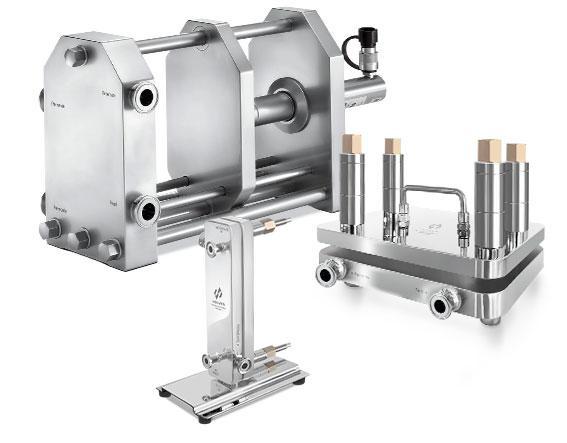
Tangential Flow Filtration is a membrane filtration technique where the feed liquid flows tangentially across the surface of the filter membrane, with a small portion of the liquid passing through the membrane. The tangential flow helps reduce fouling, as it allows the majority of the feed solution to sweep across the filter, minimizing direct pressure build-up on the membrane surface. This method contrasts with normal flow filtration, where the liquid flows directly through the filter.
TFF offers several advantages over traditional filtration methods:
While TFF is a powerful tool, it does come with certain challenges:
More questions to solve?
More Questions
More Questions
[VIRTUAL Address] HOLVES Su310 intelligent stainless steel fermenter is a new generation of pilot and small-scale production equipment, integrating hardware innovation and intelligent control. In the pharmaceutical industry, stainless steel fermenters are crucial for produ...
[Ceramic Membrane Filtration] Ceramic membrane filtration is a physical separation process that uses ceramic materials with porous structures to separate particles, microorganisms, and dissolved substances from liquids....
[Tangential Flow Filtration] The Application of Tangential Flow Filtration Cassettes...
[Four-Piston Diaphragm Pumps] What is a Four-Piston Diaphragm Pump? How Does a Four-Piston Diaphragm Pump Work? What Are the Key Advantages of Four-Piston Diaphragm Pumps?...
[Photobioreactor] Photobioreactors are specialized cultivation systems designed to grow photosynthetic microorganisms such as microalgae, cyanobacteria, and other photosynthetic cells under controlled environmental conditions. Lab-scale photobioreactor systems serve as...
[Fermenters] Optimizing Fermenters for Enhanced Production...
[Bioreactors] Biological Reactions in Bioreactors: Advanced Solutions for Efficient Fermentation...
[Tangential Flow Filtration] Tangential Flow Filtration (TFF) is a separation process widely used in various industries, especially in biopharmaceutical manufacturing, water treatment, and chemical processes....
[Small Spray Dryers] Learn the Basics of Small Spray Dryers...
[Fermenter] You can find the answer to the question about fermenter feed supplement……...
